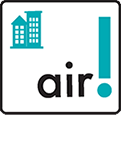The Legal Resource Center is working with landlords and property managers to encourage them to adopt smoking restrictions for their buildings. In the meantime, there are steps you can take to work with your landlord to reduce secondhand smoke in your building. This website will answer frequently asked questions, help you talk to your landlord and describe your rights .
As a tenant in a rental property, you have the right to live free of a significant cause of illness in the home and a major cause of preventable death in the United States: secondhand smoke.
For starters, we want you to know that non-smokers with serious breathing disabilities or smoke allergies may have legal protection under the Americans with Disabilities Act and the Fair Housing Act.
Additionally, laws currently exist that you may be able to use to assert your rights to a smoking-restricted apartment.
Here’s another important fact: Smoking restrictions are NOT discriminatory. As long as the restrictions are not used to target a protected class or minority, a building manager is legally free to restrict or prohibit smoking in a building.
Furthermore, there is no “right to smoke” under law, according to the U.S. Department of Housing and Urban Development (HUD). In fact, on November 30th, 2016, HUD issued a rule requiring public housing agencies (PHAs) to implement smoke-free policies on their properties, effective July 31st, 2018. The policy must prohibit smoking in indoor areas as well as within 25 feet of indoor areas. It need not include electronic smoking devices in the policy.
Our brief Fact Sheet and Frequently Asked Questions (FAQ) provide concise information on why adopting smoking restrictions makes sense for landlords and tenants; the documents also can be used as educational handouts at meetings.
Again, have an open dialogue with your landlord if you are having a problem with secondhand smoke. If no one speaks up, landlords assume that there is no problem.
